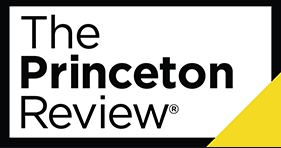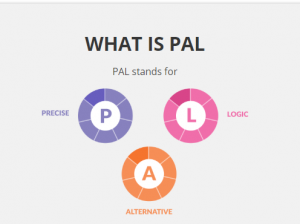If you’re planning to attend graduate school, that shows a lot of forward-thinking. You have a good plan for your future career, but your plan needs to include preparing for the Graduate Record Examination (GRE). The results of your GRE can help determine whether you’re able to get into the graduate school of your choice or not.
At this point, you probably realize that to get the best results, you need help with your GRE study plan. If you have already done some research, you may recognize both Princeton Review and Kaplan as highly regarded GRE Prep courses.
But which one is better for you?
To determine this, we’ve prepared this side-by-side comparison of these 2 reputable GRE Prep courses. We compared them according to the more relevant features that you’ll need for your GRE review.
What we will cover?
Pricing
It’s true that both Princeton Review and Kaplan offer high-quality GRE Prep study plans. You’re not wasting your money with either of these options. But you may have to face the reality of your limited budget, so you need to know if these plans are affordable.
Currently, Kaplan is offering a 15% discount on their GRE courses though we display the regular prices. Princeton Review offers discounts ranging from 20% to 27%, though there’s no discount with the Private Tutoring Plan.
Take these into account when you figure the cost, though these discounts may not be permanent. Let’s check out the prices, from most affordable to most expensive.
| Princeton Review | Kaplan |
| GRE self-paced $499 ($399 with discount) | Self-Paced $449 ($406.65 with discount and shipping) |
| GRE Ultimate $1,199 ($899 with discount) | Self-Paced Plus $699 |
| Quant 162+ Course $1,499 ($1,099 with discount) | Live Online – Lecture $999 |
| Live Online – Small Class $1,199 | |
| Live Online PLUS – Small Class $1,499 | |
| GRE Tutoring- 10 hours $1,800 | Private Tutoring- 10 hours $2,299 |
| GRE Tutoring- 18 hours$3,000 | Private Tutoring- 20 hours $3,199 |
| Private Tutoring- 30 hours $3,999 | |
| Private Tutoring- 40 hours $4,899 |
Kaplan has slashed their prices recently, which makes them a lot more affordable. If you’re comparing the cheapest options for each, there is only an $8 difference. The prices for the online classes are the same at $1,499.
Princeton Review offers a discount that cuts the price down significantly to $1,099 which gives it the victory right now.
Also, the $1,800-$3,000 Princeton Review prices for their Private Tutoring courses are actually more affordable than what Kaplan charges. Kaplan prices range from $2,299 to $4,899.
Advantage: Princeton Review
GRE Course Plans and Formats
Now let’s take a closer look at what you’re actually getting for your money. Here are the GRE courses that both offer:
Princeton Review
| GRE Course | Features |
| GRE Self-Paced ($499) | · 8 practice tests
· 61+ online drills and lessons · 2,570+ practice questions · Math Fundamentals live online classes · Free retake if you’re not happy with your GRE test score |
| Quant 162+ Course ($1,499) | · 25 instruction hours
· 1-on-1 personal study manager · 3,600+ GRE exam-style questions · 4.5 hours of Verbal Live Online sessions · 50+ hours of self-guided verbal instruction · Verbal section-specific practice tests · 470+ online drills · 180+ hours of online tools · Interactive score reports · 8 computer-adaptive practice exams |
| GRE Ultimate ($1,199) | · 24 hours of live instruction
· 180+ hours of total instruction and practice · 470+ online drills · 3500+ practice questions · 8 computer adaptive-by-section practice exams · Interactive score reports |
| GRE Tutoring | · 10 hours of instruction, $1,800
· 18 hours, $3,000 |
Kaplan
| Self-Paced ($449) | · 180+ hours of online instruction and practice
· 35 hrs of GRE Channel elective live instruction · Official Test Day Experience · 5,000+ practice questions w/ Qbank · 7 full-length computer-based practice tests · 2 prep books for the GRE · 6-month online access |
| Self-Paced PLUS ($699) | · Everything included on the Self-Paced plan
· GRE Math Foundations – Self-Paced · GRE Advanced Math – Self-Paced |
| Live Online – Lecture ($999) | · 21 hrs of live instruction
· 180+ hours of online instruction and practice · 35 hrs of GRE Channel elective live instruction · Official Test Day Experience · 5,000+ practice questions w/ Qbank · 7 full-length computer-based practice tests · 2 prep books for the GRE |
| Live Online PLUS- Lecture ($1,299) | · Everything on Live Online – Lecture
· 3 hrs of 1-on-1 tutoring · GRE Math Foundations — Self-Paced · GRE Advanced Math — Self-Paced |
| Live Online – Small Class ($1,199) | · The same as with Live Online – Lecture, but with face-to-face Zoom Classroom
· Involves engagement and participation |
| Live Online PLUS – Small Class ($1,499) | · The same as with Live Online PLUS– Lecture, but with face-to-face Zoom Classroom
· Involves engagement and participation |
| Private Tutoring | · 10, 20, 30, or 40 hours
· Full-length practice tests with score analysis · Prep books and access to on-demand practice questions · Official Test Day Experience to walk you through every aspect of test day · Hundreds of hours of on-demand instruction on the GRE Channel · A full In Person or Live Online course |
You do get similar structures for the plans offered by both brands. You get online drills and practice questions, practice exams, and live instruction. Both offer online tutoring as well.
However, Kaplan offers a lot. Their basic package outstrips the Princeton Review basic course by a wide margin.
Also, you have their GRE Channel plus the unique and utterly realistic Official Test Day Experience.
Advantage: Kaplan
Course Access

With Kaplan, you get access to the GRE online study materials for 6 months. With Princeton Review, you only get 120 days (which is less than 4 months). That gives you an extra 2 months of access if you go with Kaplan. That’s crucial for many who have a busy schedule, and who need to parcel out their study time over a wider period.
Advantage: Kaplan
Practice Questions
Practice questions are perhaps among the most important factors you need to consider. That’s because you want to be faced with the same type of questions you will encounter on the real GRE. These practice questions let you test your current knowledge, but you still learn when you get the answer wrong. There’s generally a video explanation of the answer.
Kaplan offers more than 5,000 questions in their courses, including their cheapest course. That’s a lot of questions you can practice and learn from. You also have long time to finish them all.
In contrast, Princeton Review offers only 3,600+ GRE exam-style questions, and that’s with their most expensive courses. With their GRE Self-Paced course, you only get 2,570+ practice questions. That’s basically half of what you get from Kaplan.
Kaplan offers only 7 practice exams, compared to the 8 offered by Princeton Review. But at least you have more variety with Kaplan, which is why it gets the point for this part of the comparison.
Kaplan goes beyond a regular practice test and also offers the unique Official Test Day Experience. You actually get to recreate the real GRE test day. That means you go through all the motions, and you experience some of the stress of that actual test day. (It’s like going through Star Trek’s Kobayashi Maru experience, except that you can actually pass this time.)
After this, the actual test day should be a lot easier for you. This can count as a practice exam too, but it’s a lot more realistic.
Advantage: Kaplan
Flashcards
Both offer 500-flashcard packs, and they’re both customizable.
With Princeton Review, the flashcards come within the online materials. You can also buy the physical flashcard packs, which concentrate on sentence structure and vocabulary. But there’s no mobile platform, so you need to use your PC or laptop.
Kaplan, in contrast, gives you access to a mobile app you can download for free. That gives you access to the flashcards, and the interface is quite efficient with the smaller smartphone screen. The flashcards feature typical GRE vocabulary questions, with context clues and synonyms. You’re able to customize your flashcard stack, and you can even track your performance as well.
The availability of the mobile platform is a huge advantage here. After all, flashcards are designed for quick lessons, and that’s great with a smartphone. You can practice and learn with flashcards even while you’re just hanging around, or whenever you’re bored. With PCs and laptops, there’s too much hassle.
Advantage: Kaplan
Video Lectures

These 2 GRE prep options are both highly regarded because they both offer excellent recorded videos. These video lectures don’t feel like a movie or TV show you watch. It feels like you’re in the room with these instructors.
They both have instructors with lots of training and experience with effective GRE teaching. They simulate classroom exercises and demos, and also offer personal, 1-on-1 lecture styles.
Advantage: Tie
Tutoring
Both brands offer highly trained tutors, who have all done well with the GRE themselves. With the COVID restrictions, Kaplan doesn’t offer in-person tutoring, though Princeton Review offering it. You may feel more comfortable sticking to the online tutoring option.
Princeton Review offers 10 hours of tutoring for $1,800. For 18 hours, it’ll cost $3,000. So that’s about $167 to $180 per hour.
Kaplan offers 10 hours of tutoring for $2,299. It’s $3,199 for 20 hours, $3,999 for 30 hours, and $4,899 for 40 hours. Last time we checked, however, there’s a $300 discount across the board. So, the prices per hour range from $115 to $200.
Now if you really need tutoring, it seems like Kaplan offers the better deal. Unless you are looking for just 10 hours of tutoring; then it’s cheaper with Princeton Review ($180 per hour vs. Kaplan’s $200 per hour).
But for 20 hours, Kaplan tutoring costs only $160 an hour, while it costs $167 with Princeton Review. You also have the option to go for more tutoring hours, which Princeton doesn’t offer.
Advantage: Kaplan
Books

Some people feel better using books rather than smartphones and laptops to learn. Now if you’re one of these people, this factor is more important for you.
Kaplan offers 2 books with every course, while Princeton Review doesn’t. But Princeton Review offers more than 20 textbooks, which you can buy separately.
If you don’t care for reading a physical text book, in the Kaplan courses you’re actually paying for books you don’t have much use for. With Princeton Review, you get a wider range of book options, and you only pay for what you want.
Advantage: Princeton Review
Conclusion
Let’s recap how each brand did on our set of criteria:
| Factor | Winner |
| Prices | Princeton Review |
| Course Plans and Formats | Kaplan |
| Course Access | Kaplan |
| Flash Cards | Kaplan |
| Video Lectures | TIE |
| Tutoring | Kaplan |
| Books | Princeton Review |
Kaplan has more wins by our factors. Of course, some may argue that Kaplan costs more, and that means Princeton Review may offer a better value for your money.
It all depends on the factors you prioritize. If you’re determined to spend less, then Princeton Review may be your pick.
However, Kaplan does offer a mobile platform, a lot more practice questions, the terrific Quizbank feature, and the unique Official Test Day Experience. You also get 2 extra months of access. You may want to pay a bit more, as you get a lot more in return.



Review Summary
User Reviews
There are no reviews yet. Be the first one to write one.
Share Your Experience